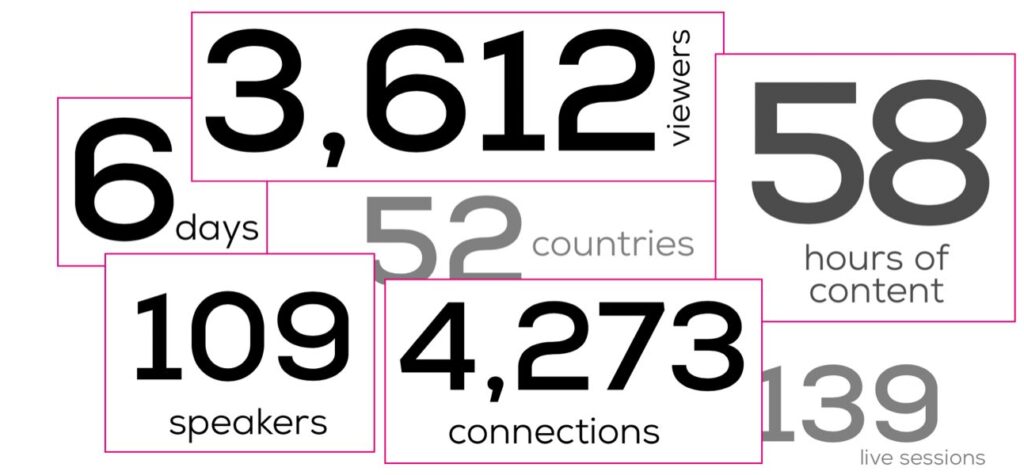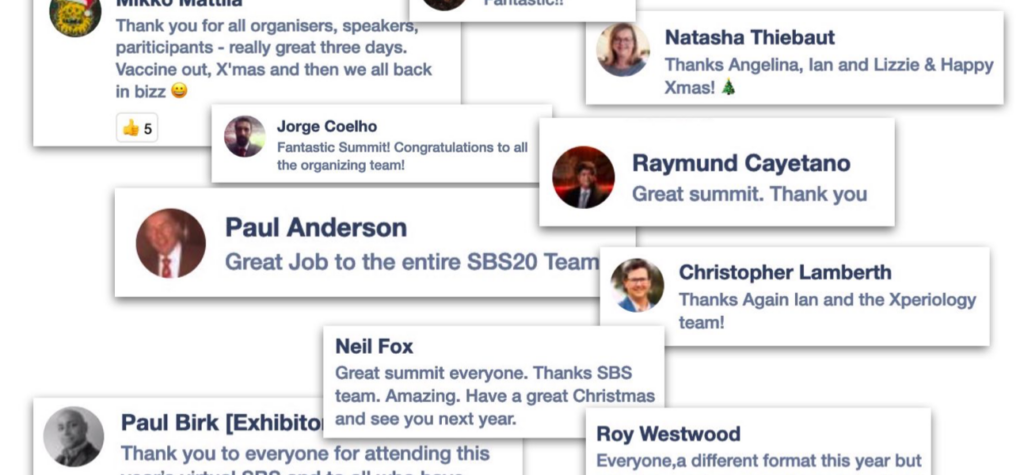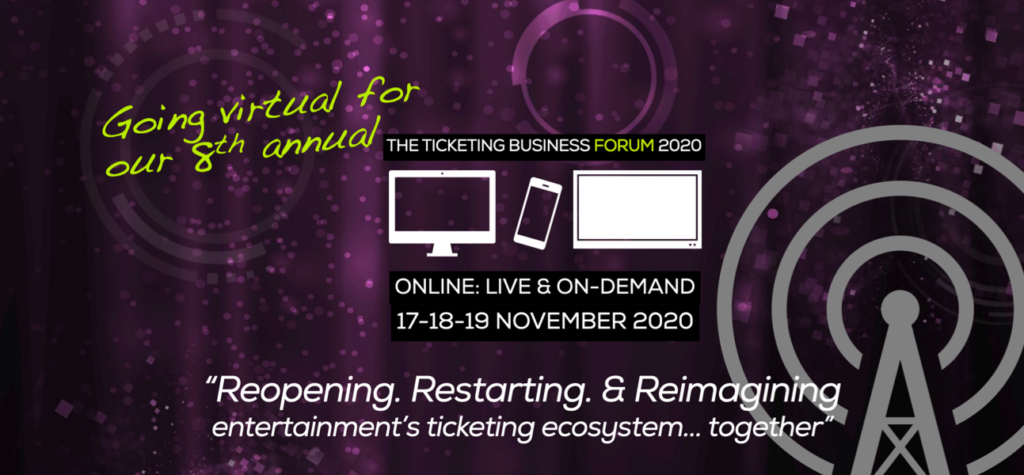FROM THE CHAIR: A Q&A with Bernie Mullin
An internationally-acclaimed management and marketing consultant and speaker, who literally ‘wrote the book’ on ‘Sport Marketing’, Dr. Bernie Mullin has over 30 years of experience as a chief executive or senior director in iconic and highly visible sport and entertainment organizations.
British-born, Dr Mullin was formerly the CEO Atlanta Hawks (NBA), Atlanta Thrashers (NHL) and Philips Arena; SVP- Marketing and Team Business at the NBA; SVP Business at MLB’s Colorado Rockies and Pittsburgh Pirates; Vice Chancellor of Athletics at the University of Denver (NCAA); and Business School / Sport Management faculty member at the University of Massachusetts.
Today, Bernie serves as Chairman and CEO of The Aspire Group, a leading global management and marketing consulting business that partners with its clients in implementing “Next-Practices” to produce winning brands, revenue enhancement and strong sales and service cultures. With clients located in seven countries located on four continents, and representing best-in-class leagues, teams and brands, The Aspire Group provides a distinct competitive advantage in maximizing organizational and marketing effectiveness, growing sales and building an avid and sustainable fan base.
And, this June, Mullin will chair the second annual Fan Experience Forum (5 June 2013, at Manchester City FC’s Etihad Stadium); the specialist one day programme that explores the latest trends, winning strategies and business ideas to enhance the sports fan visitor experience.
Ahead of the Forum, we caught up with Dr Mullin for a quick Q&A on ‘the fan experience’…
The terms ‘customer experience management’ and ‘fan experience’ have become ‘buzzwords’ in the stadium business in the past five years. But what exactly is ‘the fan experience’?
BM: The Fan Experience is commonly referred to as the ‘fan journey’ or what we called at the NBA the ‘driveway to driveway experience’. In the UK, it is more properly called the ‘Doorway to Doorway’ experience; and specificually it refers to every single element of the fan’s experience in participating in or watching the sport, from the moment they leave their home, or place of work, until they return.
For those of us in the Sports and Entertainment business, it is really about the implementation of the principles known by Disney for a long time – the science of customer satisfaction that drive repeat business and hence loyalty, profitability and sustainability. The Disney ‘Guest Experience’ is what has made them the most popular, and most profitable, entertainment destination business on the globe. It is also why they have become one of the most admired companies in the world from a customer and employee satisfaction perspective.
Why has ‘fan experience’ seemingly risen in importance and relevance?
BM: I think there are four main reasons why the fan experience has become so much more important recently:
Firstly, today’s fans are different to those in the past. They want more from their sport experience, and waiting for the phone to ring isn’t cutting it any more. We, as sports executives, have to be proactive and actually learn to sell our product.
Second, more and more sports marketers have begun to realise that the first key to growing attendance is to increase the frequency of games attended by fans, and the main way to do that is to improve the fan experience.
This starts with the fans’ first impressions of travelling to a game, getting in and out of the stadium or venue, and it includes everything in between before they experience the return trip home. At the end of the day the fan votes with their feet – they either come back again, or they don’t! This decision is predominantly based on their perception of value for their money, and value for their time.
Sports marketers have also realised that they must broaden their fan base to attract more businesses, and everyone in the family, not just Dad and the kids. Attracting more businesses means higher quality luxury boxes, club seating or upscale amenities and a much higher standard of hospitality, which in turn means significantly more revenue to the club and/or venue. As player wage bills skyrocket, more revenue becomes increasingly important to stay competitive and indeed relevant. Attracting more women and families demands much better amenities across the board, but in particular better food and beverage concessions choices and service, much better toilets and other facilities, and not being squeezed sideways to go through old fashioned turnstiles.
And fourthly, in turn, attracting a broader audience means that these ‘new fans’ may well be less interested in the game or event itself, and much more interested in the total experience of being with their business associates, family or friends. Hence, in-game entertainment and elements “outside the white lines” that enhance the ‘extended product’, such as video boards with programmed entertainment, and choreographing with dance teams/cheerleaders and live or recorded music become so much more important. Fans do not want to be ‘spammed’ with sponsor messaging during the game, and sponsors want to truly reach fans and grab their attention, so in-game entertainment features that are memorable and more fully activate the sponsor messaging are now the order of the day. What is now required is a comprehensive scripting of the entire game experience, so that clubs will need to have a game producer, much like a West End show, which is how we do it in America.
Instead of ex-cops running our stadiums as pseudo prisons where ‘football hooligans’ are herded around, we now have to treat everyone more as a ‘guest in our home’.
What are they key challenges that clubs face in managing / improving the fan experience?
BM: One of the biggest challenges is that many of the Fan Experience Elements are out of our control as venue managers (traffic and mass transit access, parking, the behaviour of home and visiting fans etc.). Then there are infrastructure challenges, and many ancient sports venues are in need of a complete makeover!) Next is providing the financial support to invest in good sound and video board systems, and the staffing for game presentations and Guest Relations is a big challenge.
Finally, the biggest challenge may be a paradigm shift across the industry. Guest Relations training is essential – it turns stewards into fan-friendly personnel who enhance the fans’ experience rather than focusing on keeping fans in seats, stopping them hurling abuse etc. This is a major cultural experience that needs to occur at most venues.
The solution is to focus on the return from increasing the attendance frequency of fans (increased repeat purchase) and the lifetime asset value, so that the sport property’s sustainability and/or growth objectives are met. Specifically, we must focus on how we can achieve a solid Return on Objectives (ROO), ie. growing our fan base and increasing attendance significantly, as well as our Return on Investment (ROI) goals, ie. increasing all business revenues by first driving ticket sales, which then drives concessions, merchandise and sponsorship revenues.
The challenge is about strategic direction, in a changing world where young people today do not want to simply spectate: they want to participate. They don’t want to do what their parents did – the ‘Always Connected Generation’ want to have fresh content, in-venue, delivered by their wireless device of choice, or else they will stay at home.
All of which provides an entirely new approach to reaching our future fans and guests.
How will Fan Experience Forum 2013 help clubs and venues?
BM:The Forum brings together all of the parties that are involved in improving the Fan Experience from just about every industry perspective – sport properties and clubs, venue operators, third-party and outsourced vendors and suppliers, and industry experts and consultants from a wide array of sports and entertainment venues.
The Forum provides the opportunity to explore in very practical detail exactly what the fan experience challenges are, what the solutions to these challenges are from people who have successfully met these challenges, who the solution providers are and what are the resources required to meet these challenges.
In short, the Fan Experience Forum 2013 is a must-attend event for every executive in this business.













Share this